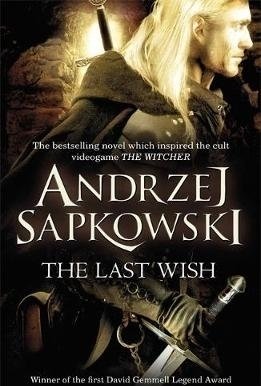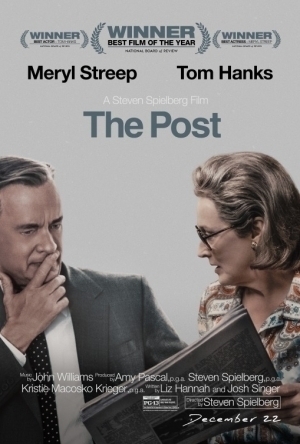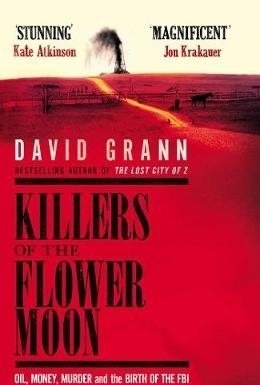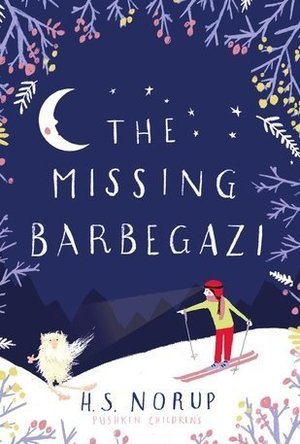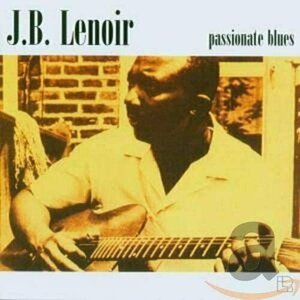Search
Search results
Louise (64 KP) rated Flight of a Starling in Books
Jul 2, 2018
* I received a copy of this book from the publisher and Netgalley in exchange for an honest review*
After reading Paper Butterflies by Lisa Heathfield last year I knew that I needed to read her latest book out. Lisa is UKYA author and I don’t think she gets enough credit for her work. This is another book that delivers a believable story with such rawness and emotion.
<img src="https://media.giphy.com/media/6DfkKrGznukr6/giphy.gif"; width="200"height="200"alt="description"/>
Our story follows Rita and Lo, two sisters that are travelers and the trapeze act in their circus that moves around England on a regular basis. Life is how it has always been for the girls, set up their tent, do a few shows and move on to the next village – they haven’t known any other life and don’t really question it. They travel with another family and it’s presumed the girls will marry the boys of the other family and carry on the legacy of the circus. One evening when they explore the local area they start talking to some of the locals and sparks start to ignite between Lo and ‘a flattie'(a term for non traveler folk). With Lo slowly falling in love she starts to question her life,her role and existence in the circus – with wanting her freedom she finds cracks starting to appear and her life crumbling around her.
‘Flight of a Starling’ didn’t fail to deliver, I knew from past works that this was going to be an emotional, gritty and raw read. Heathfield has a great writing style that manages to evoke emotions – even from me who has a heart of stone. The story is told in dual perspective, swapping from Rita to Lo with just the right sized chapters. The first half of this book is rather slow what with it building a picture of what it was like to be in a travelling community and their traditions and beliefs. I loved learning about the performances that the girls were involved in such as the trapeze and their big costumes.
I must admit that I wasn’t too keen on the romance side of the book, It was lacking emotion and connection between the characters, I wanted the warm fuzziness that you get from reading about a couple that first meet, the excitement of it…which didn’t happen and it’s sad as it has such a big part of the story.
The second half of the book takes a change in pace, it was amazing and what really made the story for me. My heart was in my mouth and I could feel the blood pulsing around my body with anxiety. I was scared for the characters,I was hoping for a silver lining but Heathfield never shies away from her writing and sucker punches you in the gut.
I recommend if you want something gritty yet believable.
I rated this book 4 out of 5 stars
After reading Paper Butterflies by Lisa Heathfield last year I knew that I needed to read her latest book out. Lisa is UKYA author and I don’t think she gets enough credit for her work. This is another book that delivers a believable story with such rawness and emotion.
<img src="https://media.giphy.com/media/6DfkKrGznukr6/giphy.gif"; width="200"height="200"alt="description"/>
Our story follows Rita and Lo, two sisters that are travelers and the trapeze act in their circus that moves around England on a regular basis. Life is how it has always been for the girls, set up their tent, do a few shows and move on to the next village – they haven’t known any other life and don’t really question it. They travel with another family and it’s presumed the girls will marry the boys of the other family and carry on the legacy of the circus. One evening when they explore the local area they start talking to some of the locals and sparks start to ignite between Lo and ‘a flattie'(a term for non traveler folk). With Lo slowly falling in love she starts to question her life,her role and existence in the circus – with wanting her freedom she finds cracks starting to appear and her life crumbling around her.
‘Flight of a Starling’ didn’t fail to deliver, I knew from past works that this was going to be an emotional, gritty and raw read. Heathfield has a great writing style that manages to evoke emotions – even from me who has a heart of stone. The story is told in dual perspective, swapping from Rita to Lo with just the right sized chapters. The first half of this book is rather slow what with it building a picture of what it was like to be in a travelling community and their traditions and beliefs. I loved learning about the performances that the girls were involved in such as the trapeze and their big costumes.
I must admit that I wasn’t too keen on the romance side of the book, It was lacking emotion and connection between the characters, I wanted the warm fuzziness that you get from reading about a couple that first meet, the excitement of it…which didn’t happen and it’s sad as it has such a big part of the story.
The second half of the book takes a change in pace, it was amazing and what really made the story for me. My heart was in my mouth and I could feel the blood pulsing around my body with anxiety. I was scared for the characters,I was hoping for a silver lining but Heathfield never shies away from her writing and sucker punches you in the gut.
I recommend if you want something gritty yet believable.
I rated this book 4 out of 5 stars
Kate Nash recommended track Black Is the Colour of My True Love's Hair by Christy Moore in Live in Dublin by Christy Moore in Music (curated)
Ivana A. | Diary of Difference (1171 KP) rated The Last Wish in Books
Aug 3, 2020
<a href="https://amzn.to/2Wi7amb">Wishlist</a>; | <a
<a href="https://diaryofdifference.com/">Blog</a>; | <a href="https://www.facebook.com/diaryofdifference/">Facebook</a>; | <a href="https://twitter.com/DiaryDifference">Twitter</a>; | <a href="https://www.instagram.com/diaryofdifference/">Instagram</a>; | <a href="https://www.pinterest.co.uk/diaryofdifference/pins/">Pinterest</a>;
#0.5 <a href="https://www.goodreads.com/review/show/3150137897">The Last Wish</a> - ★★★★
<img src="https://diaryofdifference.com/wp-content/uploads/2020/06/Book-Review-Banner-59.png"/>;
For me, The Last Wish is the perfect introduction to start the Witcher series and meet Geralt of Rivia.
<b>Synopsis</b>
The Last Wish is the prequel to the Witcher series. In this book we are introduced to Geralt of Rivia, a Witcher - a man whose magic powers and strength training made him a brilliant fighter and a merciless assassin.
However, Geralt is not an ordinary killer. He hunts the monsters that bring fear to people and creatures that attack the innocent.
But not everything is as seems, as some monsters are not evil, and not everything fair is good. In every fairy tale, there is a pinch of truth.
<b>My Thoughts:</b>
I loved the introduction of Geralt in this book. I have known Geralt from the video games, and then I watched the TV Show. Usually I am more attracted to the book characters rather than a movies/TV Show character, and this was no different. Even though, I have to admit that the video games and the TV Show are also extraordinary, when it comes to their characters. Geralt in this book is vivid and brave, and I was happy to follow him on the various adventures he went on.
The book is written in multiple chapters, each containing a call for a quest, and the following chapter containing the quest itself. Each quest is a completely different topic, all featuring Geralt, and many side characters joining him as we move along in the story.
Each chapter was magical on its own, and we get to meet various stories. We meet a girl that turned to a striga because of a curse. We encounter a beast hidden in a castle, a story that resembles the Beauty and the Beast. There are also stories that resemble the Snow White and Cinderella, all significantly darker and much more graphic in their retellings. I love how the author took those storylines and managed to create something much more sinister and cruel. Some of the stories also reminded me of the traditional Slavic folk tales, which brought back some nice feelings from my childhood too.
The last few chapters were the ones I enjoyed the most. Especially the moment when we get to meet Yennefer for the very first time. I cannot wait to read more about her in the books.
A truly beautiful and adventurous fantasy novel by Andrzej Sapkowski and published by Gollancz. I definitely recommend The Last Wish.
<a href="https://diaryofdifference.com/">Blog</a>; | <a href="https://www.facebook.com/diaryofdifference/">Facebook</a>; | <a href="https://twitter.com/DiaryDifference">Twitter</a>; | <a href="https://www.instagram.com/diaryofdifference/">Instagram</a>; | <a href="https://www.pinterest.co.uk/diaryofdifference/pins/">Pinterest</a>;
#0.5 <a href="https://www.goodreads.com/review/show/3150137897">The Last Wish</a> - ★★★★
<img src="https://diaryofdifference.com/wp-content/uploads/2020/06/Book-Review-Banner-59.png"/>;
For me, The Last Wish is the perfect introduction to start the Witcher series and meet Geralt of Rivia.
<b>Synopsis</b>
The Last Wish is the prequel to the Witcher series. In this book we are introduced to Geralt of Rivia, a Witcher - a man whose magic powers and strength training made him a brilliant fighter and a merciless assassin.
However, Geralt is not an ordinary killer. He hunts the monsters that bring fear to people and creatures that attack the innocent.
But not everything is as seems, as some monsters are not evil, and not everything fair is good. In every fairy tale, there is a pinch of truth.
<b>My Thoughts:</b>
I loved the introduction of Geralt in this book. I have known Geralt from the video games, and then I watched the TV Show. Usually I am more attracted to the book characters rather than a movies/TV Show character, and this was no different. Even though, I have to admit that the video games and the TV Show are also extraordinary, when it comes to their characters. Geralt in this book is vivid and brave, and I was happy to follow him on the various adventures he went on.
The book is written in multiple chapters, each containing a call for a quest, and the following chapter containing the quest itself. Each quest is a completely different topic, all featuring Geralt, and many side characters joining him as we move along in the story.
Each chapter was magical on its own, and we get to meet various stories. We meet a girl that turned to a striga because of a curse. We encounter a beast hidden in a castle, a story that resembles the Beauty and the Beast. There are also stories that resemble the Snow White and Cinderella, all significantly darker and much more graphic in their retellings. I love how the author took those storylines and managed to create something much more sinister and cruel. Some of the stories also reminded me of the traditional Slavic folk tales, which brought back some nice feelings from my childhood too.
The last few chapters were the ones I enjoyed the most. Especially the moment when we get to meet Yennefer for the very first time. I cannot wait to read more about her in the books.
A truly beautiful and adventurous fantasy novel by Andrzej Sapkowski and published by Gollancz. I definitely recommend The Last Wish.
Bob Mann (459 KP) rated The Post (2017) in Movies
Sep 29, 2021
Landing the Hindenburg in a Thunderstorm.
What a combination: Streep, Hanks, Spielberg, Kaminski behind the camera, Williams behind the notes. What could possibly go wrong?
Nothing as it turns out. After, for me, the disappointment of “The BFG” here is Spielberg on firm ground and at the height of his game.
It’s 1971 and the New York Times is in trouble for publishing what became known as “The Pentagon Papers”: a damning account of multiple administration’s dodgy dealings around the Vietnam War, put together by Robert McNamara (Bruce Greenwood, “Star Trek: Into Darkness“) and meant for “posterity” – not for publication! Watching from the sidelines with frustration at their competitor’s scoop are the Washington Post’s editor Ben Bradlee (Tom Hanks, “Bridge of Spies“, “Inferno“) and the new owner Kay Graham (Meryl Streep, “Florence Foster Jenkins“, “Suffragette“). With immaculate timing, Graham is taking the paper public, so needs the newspaper embroiled in any sort of scandal like a hole in the head. But with the US First Amendment under pressure, will Graham and Bradlee put their business and their freedom at risk by publishing and being damned?
Bradlee (Tom Hanks) and Graham (Meryl Streep) in the Washington Post’s newsroom.
Both of the leads play characters that are quite strikingly out of character from their normal roles.
In a seamingly endless run of ‘kick-ass’ women in the movie driving seat, here I expected Streep to be in full “Iron Lady” mode, but in fact she starts the film as quite the opposite: nervous, timid, vascillating. For although the story is about “The Washington Post” and “The Pentagon Papers”, the real story is about Graham herself (Liz Hannah’s script is actually based on Graham’s autobiography). In many ways it’s about a woman, in a male world, overcoming her fear and finding her own voice. As has been demonstrated in many recent films (“Hidden Figures” for example) the working world for woman has changed so markedly since the 60’s and 70’s that it’s almost impossible to relate to these chavenistic attitudes. Graham is repeatedly downtrodden as “not good enough” by her underlings within earshot, and then thanks them “for their frankness”. When the women folk retire at dinner, to let the men-folk talk politics, Graham meekly goes with them. Even her father, for God’s sake, left the newspaper not to her but to her (now late) husband! It’s no surprise then that she is coming from a pretty low base of self-confidence, and her journey in the film – as expertly played by Streep – is an extraordinarily rousing one.
The real deal: Ben Bradlee and Kay Graham.
Hanks, normally the guy you’d most like to invite round for dinner (@tomhanks if you happen to be reading this sir, that’s a genuine invitation… we make a mean lasagne here!) also plays somewhat outside of his normal character here. As Bradlee, he is snappy, brusque and businesslike. Although I don’t think he could ever quite match the irascibility of the character’s portrayal by Jason Robards in the classic “All the President’s Men” – who could? – its a character with real screen presence.
The similarities with Alan J Pakula’s 1976 classic Watergate movie – one of my personal favourites – don’t stop there. The same sets that were once populated by Redford and Hoffman are gloriously reproduced with Spielberg and Janusz Kaminski delivering great tracking shots through the newsroom. (Watch out for Sacha Spielberg – daughter of Stephen and Kate Capshaw – who also turns up there delivering a package).
The scoop revealed: Odenkirk, Hanks and David Cross get the low-down.
The supporting cast includes Sarah Paulson (so memorable in “The Trial of O.J. Simpson”) as Bradlee’s wife Tony, Bradley Whitford (“The West Wing”, “Get Out“) and Tracy Letts (“The Big Short“) as two of Graham’s board advisors and Jesse Plemons (“The Program“, “Bridge of Spies“) as the lead legal advisor. Particularly impressive though is Bob Odenkirk (“Breaking Bad”) as Ben Bagdikian, Bradlee’s lead investigative reporter on the case: all stress, loose change and paranoia in his dealings with the leaky Daniel Ellsberg (Matthew Rhys).
Bagdikian (Bob Odenkirk) ordering a drink for himself and his travelling companion.
In a memorable piece of casting Richard Nixon is played by…. Richard Nixon. Although a silluohetted Curzon Dobell stalks the Oval office, the ex-president’s original phone recordings are played on the soundtrack. (There, I knew those recordings would be useful for something… thank heavens he kept them all!)
The film also demonstrates in fascinating style the newsprint business of yesteryear. When I click a button on my PC and a beautifully laser-printed page streams out of my Epson printer, it still seems like witchcraft to me! But it is extraordinary to think that newspapers in those days were put together by typesetters manually building up the pages from embossed metal letters laboriously slotted into a frame. Brilliantly evocative.
Ellsberg (Matthew Rhys) takes a risk.
If Spielberg has a fault, it is one of sentimentality – something that is pointed out in Susan Lacy’s superb HBO documentary on Spielberg (something I have yet to write a review on, but if you like Spielberg you should definitely seek out). Here he falls into that trap again, with an unnecessary bedroom scene between Graham and her daughter tipping the screenplay into mawkishness. It’s unnecessary since we don’t need the points raised rammed down our throats again. It’s something repeated in a rather bizarre final scene with Graham walking down the steps of the supreme court with admiring woman – only woman – watching her. These irritations tarnish for me what could have been a top-rated film.
But the movie is an impressive watch and older viewers, and anyone interested in American political history will, I think, love it. The film, especially with its nice epilogue, did make me immediately want to come home and put “All the President’s Men” on again… which is never a bad thing. Highly recommended.
Nothing as it turns out. After, for me, the disappointment of “The BFG” here is Spielberg on firm ground and at the height of his game.
It’s 1971 and the New York Times is in trouble for publishing what became known as “The Pentagon Papers”: a damning account of multiple administration’s dodgy dealings around the Vietnam War, put together by Robert McNamara (Bruce Greenwood, “Star Trek: Into Darkness“) and meant for “posterity” – not for publication! Watching from the sidelines with frustration at their competitor’s scoop are the Washington Post’s editor Ben Bradlee (Tom Hanks, “Bridge of Spies“, “Inferno“) and the new owner Kay Graham (Meryl Streep, “Florence Foster Jenkins“, “Suffragette“). With immaculate timing, Graham is taking the paper public, so needs the newspaper embroiled in any sort of scandal like a hole in the head. But with the US First Amendment under pressure, will Graham and Bradlee put their business and their freedom at risk by publishing and being damned?
Bradlee (Tom Hanks) and Graham (Meryl Streep) in the Washington Post’s newsroom.
Both of the leads play characters that are quite strikingly out of character from their normal roles.
In a seamingly endless run of ‘kick-ass’ women in the movie driving seat, here I expected Streep to be in full “Iron Lady” mode, but in fact she starts the film as quite the opposite: nervous, timid, vascillating. For although the story is about “The Washington Post” and “The Pentagon Papers”, the real story is about Graham herself (Liz Hannah’s script is actually based on Graham’s autobiography). In many ways it’s about a woman, in a male world, overcoming her fear and finding her own voice. As has been demonstrated in many recent films (“Hidden Figures” for example) the working world for woman has changed so markedly since the 60’s and 70’s that it’s almost impossible to relate to these chavenistic attitudes. Graham is repeatedly downtrodden as “not good enough” by her underlings within earshot, and then thanks them “for their frankness”. When the women folk retire at dinner, to let the men-folk talk politics, Graham meekly goes with them. Even her father, for God’s sake, left the newspaper not to her but to her (now late) husband! It’s no surprise then that she is coming from a pretty low base of self-confidence, and her journey in the film – as expertly played by Streep – is an extraordinarily rousing one.
The real deal: Ben Bradlee and Kay Graham.
Hanks, normally the guy you’d most like to invite round for dinner (@tomhanks if you happen to be reading this sir, that’s a genuine invitation… we make a mean lasagne here!) also plays somewhat outside of his normal character here. As Bradlee, he is snappy, brusque and businesslike. Although I don’t think he could ever quite match the irascibility of the character’s portrayal by Jason Robards in the classic “All the President’s Men” – who could? – its a character with real screen presence.
The similarities with Alan J Pakula’s 1976 classic Watergate movie – one of my personal favourites – don’t stop there. The same sets that were once populated by Redford and Hoffman are gloriously reproduced with Spielberg and Janusz Kaminski delivering great tracking shots through the newsroom. (Watch out for Sacha Spielberg – daughter of Stephen and Kate Capshaw – who also turns up there delivering a package).
The scoop revealed: Odenkirk, Hanks and David Cross get the low-down.
The supporting cast includes Sarah Paulson (so memorable in “The Trial of O.J. Simpson”) as Bradlee’s wife Tony, Bradley Whitford (“The West Wing”, “Get Out“) and Tracy Letts (“The Big Short“) as two of Graham’s board advisors and Jesse Plemons (“The Program“, “Bridge of Spies“) as the lead legal advisor. Particularly impressive though is Bob Odenkirk (“Breaking Bad”) as Ben Bagdikian, Bradlee’s lead investigative reporter on the case: all stress, loose change and paranoia in his dealings with the leaky Daniel Ellsberg (Matthew Rhys).
Bagdikian (Bob Odenkirk) ordering a drink for himself and his travelling companion.
In a memorable piece of casting Richard Nixon is played by…. Richard Nixon. Although a silluohetted Curzon Dobell stalks the Oval office, the ex-president’s original phone recordings are played on the soundtrack. (There, I knew those recordings would be useful for something… thank heavens he kept them all!)
The film also demonstrates in fascinating style the newsprint business of yesteryear. When I click a button on my PC and a beautifully laser-printed page streams out of my Epson printer, it still seems like witchcraft to me! But it is extraordinary to think that newspapers in those days were put together by typesetters manually building up the pages from embossed metal letters laboriously slotted into a frame. Brilliantly evocative.
Ellsberg (Matthew Rhys) takes a risk.
If Spielberg has a fault, it is one of sentimentality – something that is pointed out in Susan Lacy’s superb HBO documentary on Spielberg (something I have yet to write a review on, but if you like Spielberg you should definitely seek out). Here he falls into that trap again, with an unnecessary bedroom scene between Graham and her daughter tipping the screenplay into mawkishness. It’s unnecessary since we don’t need the points raised rammed down our throats again. It’s something repeated in a rather bizarre final scene with Graham walking down the steps of the supreme court with admiring woman – only woman – watching her. These irritations tarnish for me what could have been a top-rated film.
But the movie is an impressive watch and older viewers, and anyone interested in American political history will, I think, love it. The film, especially with its nice epilogue, did make me immediately want to come home and put “All the President’s Men” on again… which is never a bad thing. Highly recommended.
Suswatibasu (1703 KP) rated Killers of the Flower Moon: The Osage Murder and the Birth of the FBI in Books
Nov 24, 2017 (Updated Nov 24, 2017)
Mind-blowing and a disconcerting read
I can say without a doubt, this is one of the best novels I've read this year. It is a disturbing and excellent real-life account of the plight of Native Americans who found themselves the unwitting beneficiaries of a financial boom in the 1920's after oil was discovered under the previously barren and worthless reservation they were moved to.
This fantastic book relates to a story covered in blood, racism and greed. Oil, black gold, made the Plains Osage tribe incredibly wealthy. By the 1890's, the remnants of this great people were in the scrub lands of Northern Oklahoma.
Their life was continually harsh, the soil poor. In the late 1890's, by chance, oil was struck in Osage County, flowing in abundance and in great demand. From 1918 to 1928, $202 million was paid to the tribe which by then numbered around 3000, transforming their lives. 680 barrels were obtained in a day in 1920 from a strike at Burbank, angering the whites and thus began the "Reign of Terror" in which hundreds of the Osage tribe members were subsequently killed in the most horrendous display of corruption.
The book itself begins in 1921 with an Osage woman who had a share of the mineral riches to be found under the Osage land. Mollie like others was subject to a law that treated her tribe as juveniles whose estates had to be administered by white guardians, that is local lawyers and businessmen, appointed by local courts.
Guardianship was unpoliced and few records were kept. Fraud was therefore prevalent and many of the local white community participated in corruption - murder was widespread as a result. Mollie's sister, Anna, was the first noticeable murder in which she was shot and killed, launching a major probe into similar killings in the area. Many other murders were committed over the following years, with poisoning as the most common method of killing. Essentially it was a covert form of genocide.
The locals refused to act, partly due to fear or involvement in this heinous plot, so J. Edgar Hoover, who was the first president of the FBI, became involved in the investigation. He sent a tall Texas Ranger called Tom White to scrutinise an epic series of murders in which even investigators were targets.
What follows is not only history but a riveting detective story and the book demonstrates yet again the enormous cost of American nationhood. It provides some fascinating insight into the early workings of the FBI (not least Hoover's nascent megalomania) for whom this was a celebrated case and a valuable reminder for folk who thought the persecution of American Indians ended in the late 19th century. Author and journalist David Grann does a superb job in collating all of the information with dozens of pages solely highlighting attributions and references - it is thorough and well-researched. Therefore it is hardly surprising that Hollywood has snapped up this book to turn it into a major motion picture - let's hope they don't whitewash history once again.
This fantastic book relates to a story covered in blood, racism and greed. Oil, black gold, made the Plains Osage tribe incredibly wealthy. By the 1890's, the remnants of this great people were in the scrub lands of Northern Oklahoma.
Their life was continually harsh, the soil poor. In the late 1890's, by chance, oil was struck in Osage County, flowing in abundance and in great demand. From 1918 to 1928, $202 million was paid to the tribe which by then numbered around 3000, transforming their lives. 680 barrels were obtained in a day in 1920 from a strike at Burbank, angering the whites and thus began the "Reign of Terror" in which hundreds of the Osage tribe members were subsequently killed in the most horrendous display of corruption.
The book itself begins in 1921 with an Osage woman who had a share of the mineral riches to be found under the Osage land. Mollie like others was subject to a law that treated her tribe as juveniles whose estates had to be administered by white guardians, that is local lawyers and businessmen, appointed by local courts.
Guardianship was unpoliced and few records were kept. Fraud was therefore prevalent and many of the local white community participated in corruption - murder was widespread as a result. Mollie's sister, Anna, was the first noticeable murder in which she was shot and killed, launching a major probe into similar killings in the area. Many other murders were committed over the following years, with poisoning as the most common method of killing. Essentially it was a covert form of genocide.
The locals refused to act, partly due to fear or involvement in this heinous plot, so J. Edgar Hoover, who was the first president of the FBI, became involved in the investigation. He sent a tall Texas Ranger called Tom White to scrutinise an epic series of murders in which even investigators were targets.
What follows is not only history but a riveting detective story and the book demonstrates yet again the enormous cost of American nationhood. It provides some fascinating insight into the early workings of the FBI (not least Hoover's nascent megalomania) for whom this was a celebrated case and a valuable reminder for folk who thought the persecution of American Indians ended in the late 19th century. Author and journalist David Grann does a superb job in collating all of the information with dozens of pages solely highlighting attributions and references - it is thorough and well-researched. Therefore it is hardly surprising that Hollywood has snapped up this book to turn it into a major motion picture - let's hope they don't whitewash history once again.
Naomi Forrest (42 KP) rated The Missing Barbegazi in Books
Jan 4, 2019
This is Helle Norup's debut novel and was featured as a Sunday Times Children's Book of the Year. It is magical and the perfect book to read as you curl up in your pyjamas with a cup of hot chocolate.
A Barbegazi, in case you are wondering as I did, is a type of Swiss mountain/snow elf with a long beard that can only live in freezing conditions and has a severe intolerance to iron. The story is told from the point of view of Tessa, a young skier and Gaiwon, a barbegazi who is hunting for his missing sister. No-one believes the barbegazi exist anymore except Tessa. The only other believer was her recently deceased opa (grandad) and a professor who wrote about them years before. The barbegazi, for their part, rescue humans who have been trapped and injured in avalanches, erasing their memories afterwards. They are extremely mistrusting of humans.
. Norup's passion for skiing, the Alps and magic are clear throughout the novel and I think this is what makes the story so captivating. I loved the development of Tessa from grieving for her grandfather and wanting everybody to believe he was right about the barbegazi to realising that fame and proving a point are less important than trust and friendship. She never wavers in her faith that the barbegazi still exist and is a headstrong and loveable character.
The highlight for me was definitely reading about the barbegazi themselves. I particularly love that despite being more than a hundred old, Gaiwon's parents still treat him like a child. I loved the argument between Gaiwon and his father as Gaiwon shouts "I cannot wait to get my own cave" and his father retorts: "You can build one right now. And take your sesquicentennial hormones with you." This highlights that Norup doesn't 'write down' to the target audience but includes wide ranging vocabulary, as well as her own inventions, such as 'potzblitz', an emphatic expression of the barbegazi.
There is peril throughout the book though this is very mild. Tessa learns that people are not always as trustworthy as they seem. I always love the text-book sections that punctuate the novel (see photo below), describing features and traits of the barbegazi. This is really effective with ambitious vocabulary for children and introduces them to another style of writing, combining fictive and non-fiction styles. The book is set between Boxing Day and New Year's Eve, that magical time when you don't know what day it really is and we are all enjoying the post-Christmas days where we live in our pyjamas, eat too much and don't really do much of anything except relax and catch up. It was simply the most perfect time to read this book and imagine I was in a gorgeous Alpine ski lodge, surrounded by magical folk who will keep me safe in the snow. This is a fantastic debut novel and I really can't wait to see what Norup offers up next. Thanks for making my Christmas even more magical, Helle!
A Barbegazi, in case you are wondering as I did, is a type of Swiss mountain/snow elf with a long beard that can only live in freezing conditions and has a severe intolerance to iron. The story is told from the point of view of Tessa, a young skier and Gaiwon, a barbegazi who is hunting for his missing sister. No-one believes the barbegazi exist anymore except Tessa. The only other believer was her recently deceased opa (grandad) and a professor who wrote about them years before. The barbegazi, for their part, rescue humans who have been trapped and injured in avalanches, erasing their memories afterwards. They are extremely mistrusting of humans.
. Norup's passion for skiing, the Alps and magic are clear throughout the novel and I think this is what makes the story so captivating. I loved the development of Tessa from grieving for her grandfather and wanting everybody to believe he was right about the barbegazi to realising that fame and proving a point are less important than trust and friendship. She never wavers in her faith that the barbegazi still exist and is a headstrong and loveable character.
The highlight for me was definitely reading about the barbegazi themselves. I particularly love that despite being more than a hundred old, Gaiwon's parents still treat him like a child. I loved the argument between Gaiwon and his father as Gaiwon shouts "I cannot wait to get my own cave" and his father retorts: "You can build one right now. And take your sesquicentennial hormones with you." This highlights that Norup doesn't 'write down' to the target audience but includes wide ranging vocabulary, as well as her own inventions, such as 'potzblitz', an emphatic expression of the barbegazi.
There is peril throughout the book though this is very mild. Tessa learns that people are not always as trustworthy as they seem. I always love the text-book sections that punctuate the novel (see photo below), describing features and traits of the barbegazi. This is really effective with ambitious vocabulary for children and introduces them to another style of writing, combining fictive and non-fiction styles. The book is set between Boxing Day and New Year's Eve, that magical time when you don't know what day it really is and we are all enjoying the post-Christmas days where we live in our pyjamas, eat too much and don't really do much of anything except relax and catch up. It was simply the most perfect time to read this book and imagine I was in a gorgeous Alpine ski lodge, surrounded by magical folk who will keep me safe in the snow. This is a fantastic debut novel and I really can't wait to see what Norup offers up next. Thanks for making my Christmas even more magical, Helle!

Kalki Fashion: Online Shopping
Shopping and Lifestyle
App
Shop your heart out through our KalkiFashion App or Kalki Shopping App for Women and book your...

Aladdin and The Magic Lamp - Interactive Kids Book
Book and Education
App
>> Watch how a little lamp & it's genie can turn a tailor’s son into a real prince >> Educational...


